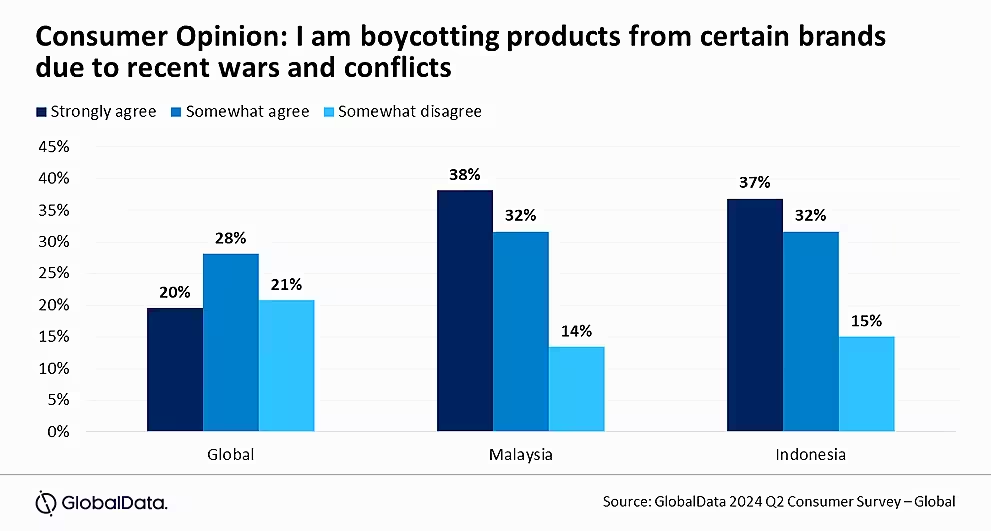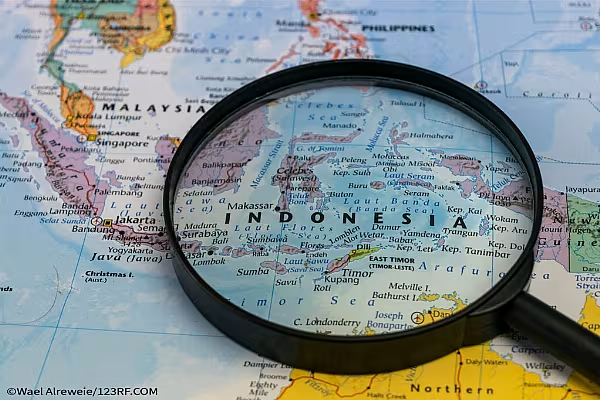One fifth of global consumers 'strongly agree' with boycotting brands due to geopolitical tensions, such as the current Israel-Hamas war, according to GlobalData.
Consumers were asked whether they agreed with the statement 'I am boycotting products from certain brands due to recent wars and conflicts', with 20% stating that they 'strongly agree' with this statement.
In addition, 28% said that they 'somewhat agree', while 21% noted that they 'somewhat disagree'.
Negative Impact
“Several well-known brands have been negatively impacted by consumers boycotting companies they believe to be pro-Palestine or pro-Israel," commented Shravani Mali, consumer analyst at GlobalData. "This can be substantiated through a GlobalData Consumer Survey, wherein 48% of respondents across the globe strongly/somewhat agree that they are boycotting products from certain brands due to recent wars and conflicts."
One example of a company affected by this trend is Americana Restaurants International. The company, which operates brands like KFC, Pizza Hut, and Krispy Kreme across roughly 2,500 locations in the Middle East and North Africa, experienced a 15% drop in revenue during the last quarter of 2023. In response to these challenges, Americana had to lay off about 100 employees.

Southeast Asia
A notable finding from the study was that consumers in Southeast Asia were more likely to boycott brands over said geopolitical issues, with 38% of consumers 'strongly agreeing' and 32% 'somewhat agreeing' in Malaysia, and 37% 'strongly agreeing' and 32% 'somewhat agreeing' in Indonesia.
As Mali noted, QSR Brands Holdings Bhd, the operator of KFC and Pizza Hut brands in Malaysia, temporarily suspended operations at over 100 KFC outlets due to a boycott of Western companies by pro-Palestine consumers.
“Boycotts change consumer behaviour, due to which brands face tough market conditions amid the evolving geopolitical landscape," she added. "Moreover, given the widespread penetration of social media, the impact of regional conflicts is spreading beyond the immediate neighbourhood, as evident from the boycotts in Malaysia.
"Companies must adapt to these situations by enhancing their risk management strategies to navigate the complexities.”











